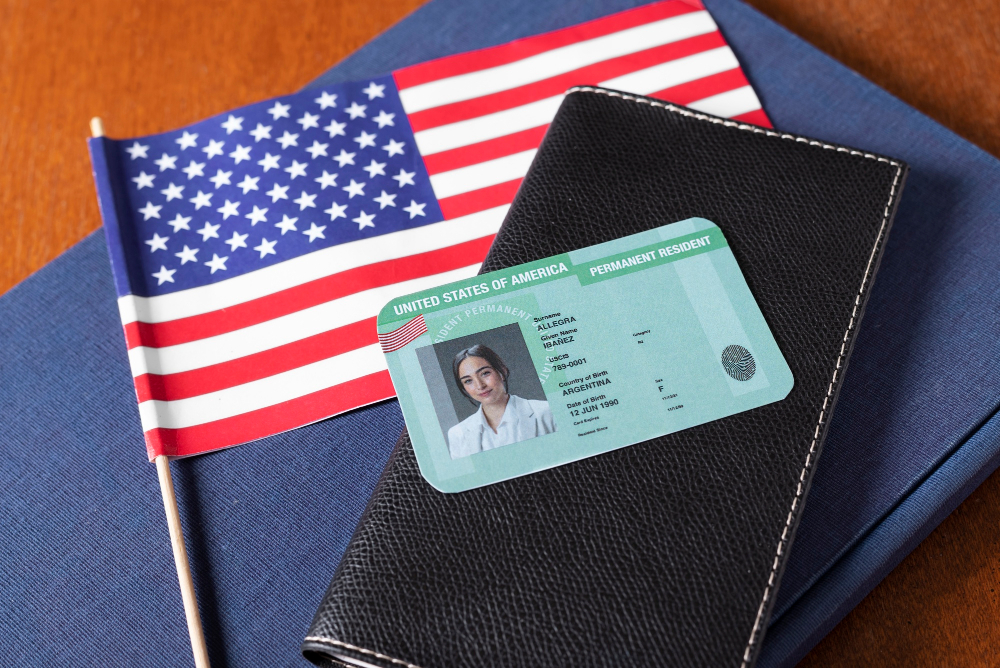Georgia’s voter ID laws do not prevent millions from voting, but they do present significant barriers for certain groups. The Election Integrity Act of 2021 requires voters to provide specific forms of identification, such as a driver’s license or state ID, to vote absentee. Approximately 272,000 registered voters in Georgia lack these IDs, necessitating additional documentation to cast their ballots . These requirements disproportionately affect Black voters and those in metropolitan areas . While overall voter turnout has remained high, these laws can create hurdles for marginalized communities, potentially impacting their participation in elections.
The Origins of Voter ID Laws.
Voter ID laws in Georgia have deep historical roots that trace back to the broader national conversation about election integrity. The state first implemented a photo ID requirement for voters in 2006, citing concerns about potential voter impersonation.
Proponents of these laws argued that requiring identification would enhance the security of the electoral process and restore public confidence in elections. This legislative move was seen as a response to a perceived rise in voter fraud, despite studies showing that such incidents were exceedingly rare.
The push for voter ID laws in Georgia aligns with trends observed in several states across the country. Advocates highlighted a need for uniformity and accountability in voting practices, asserting that a photo ID would create a standardized method of verifying voter identity.
They claimed that such measures would protect the integrity of the ballot box and ensure that every vote counted was legitimate. However, opponents quickly pointed out that these laws often disproportionately affect marginalized communities, raising questions about their true intent and impact on voter participation.
In Georgia, the discussion around voter ID laws intensified as political landscapes shifted. Some lawmakers framed these measures as part of a larger effort to modernize the voting process. However, critics argue that while the stated reasons may focus on security, the actual effects can disenfranchise eligible voters who lack the required identification.
This dual narrative has created ongoing tension between ensuring electoral integrity and promoting inclusive access to voting, particularly in a state with a diverse demographic landscape.
As Georgia continues to grapple with its voter ID laws, understanding their origins helps clarify the motivations behind these regulations. While some view them as necessary safeguards, others see them as barriers to participation. The ongoing debate underscores the importance of examining how these laws influence voter turnout and the broader implications for democracy in Georgia.
Common Myths About Voter ID Laws.
Voter ID laws have sparked heated debates, particularly concerning their impact on minority voters. One prevalent myth claims that these laws disproportionately affect communities of color, disenfranchising millions. However, studies indicate that the actual impact may not align with this narrative.
For instance, a report from the Brennan Center for Justice highlights that minority voter turnout has remained relatively stable in Georgia since the implementation of voter ID laws. While challenges exist, attributing lower participation solely to ID requirements overlooks broader socioeconomic factors that also influence voting behavior.
Another common misconception is that millions of Georgians are unable to vote because they lack proper identification. In reality, the numbers do not support this assertion. According to state data, less than 1% of registered voters in Georgia do not possess the necessary IDs.
Moreover, Georgia provides free photo IDs to ensure accessibility. This proactive measure aims to facilitate voter participation rather than hinder it. Therefore, framing the issue as a crisis affecting millions misrepresents the situation and detracts from discussions about enhancing election integrity.
Finally, the notion that rampant voter fraud necessitates strict ID laws is another myth worth addressing. Studies consistently show that voter fraud is exceedingly rare in the United States. A comprehensive investigation by the National Association of Secretaries of State found that cases of impersonation at the polls are virtually nonexistent.
This lack of evidence raises questions about the justification for stringent ID laws. Instead of focusing on unfounded fears of widespread fraud, lawmakers should prioritize policies that genuinely enhance election integrity while ensuring all eligible voters can participate in the democratic process.
Statistical Analysis of Voter Participation.
To understand the real impact of voter ID laws in Georgia, one must examine the data on voter turnout before and after their implementation. In 2006, Georgia introduced its first voter ID law, and since then, the state has seen fluctuations in voter participation.
For instance, during the 2004 presidential election, Georgia recorded a voter turnout of approximately 61%. After the introduction of voter ID laws, the turnout rate for the 2008 presidential election was around 70%. This increase challenges the myth that voter ID laws suppress participation; instead, it appears that more citizens engaged with the electoral process.
When breaking down turnout by demographics, the picture becomes even clearer. Data from the U.S. Census Bureau reveals that while some minority groups express concerns about ID requirements, their participation rates have generally increased over the years.
For example, Black voter turnout rose from 54% in 2004 to 65% in 2008. This trend contradicts the narrative that voter ID laws disproportionately disenfranchise minority voters. Instead of a mass exodus from the polls, evidence suggests that these laws have not deterred significant segments of the electorate.
Moreover, analyzing recent elections shows that despite ongoing debates about voter suppression, turnout remained robust across different demographic groups. In the 2020 presidential election, Georgia experienced historic participation levels, with overall turnout exceeding 80%.
This statistic further undermines the myth that voter ID laws prevent millions of Americans from exercising their right to vote. The reality illustrates a more complex landscape where voters adapt to new regulations rather than retreat from civic engagement.
In summary, statistical evidence reveals that voter ID laws in Georgia have not led to significant declines in voter participation. On the contrary, many demographics have shown increased involvement in elections post-implementation.
Recognizing this reality is crucial for informed discussions about the efficacy and necessity of voter ID laws as they continue to evolve in response to public sentiment and legal scrutiny.
Expert Opinions on Voter ID Laws.
Political analysts and scholars present a spectrum of insights regarding voter ID laws in Georgia. Many emphasize that these laws are framed as necessary measures to protect voting rights and ensure election integrity. Dr. Lisa Simmons, a political scientist at the University of Georgia, argues that while voter fraud remains minimal, the perception of fraud drives legislative action.
She points out that this perception often overshadows the real barriers many voters face, such as accessibility and education about the voting process. Thus, while proponents argue for security, they may inadvertently undermine participation by imposing ID requirements.
Conversely, advocacy groups like the Georgia Alliance for Voting Rights challenge the narrative surrounding voter ID laws. They assert that these regulations disproportionately impact marginalized communities, particularly African Americans and low-income individuals.
According to their research, many eligible voters lack the required forms of identification due to financial constraints or logistical issues. This perspective highlights a critical concern: while voter ID laws are intended to safeguard elections, they may inadvertently disenfranchise those who already face systemic obstacles in exercising their voting rights.
Furthermore, experts note that the debate extends beyond mere statistics. Advocacy groups stress the importance of fostering an inclusive electoral environment. They argue that education and outreach programs can mitigate the negative effects of voter ID laws.
For instance, initiatives that provide free IDs and information on how to obtain them have shown promise in increasing participation rates among affected populations. This approach emphasizes collaboration between policymakers and advocacy organizations to ensure that voting rights remain accessible to all Georgians.
Real-World Impact of Voter ID Laws.
Voter ID laws in Georgia have tangible effects on the voting experience for many residents. Case studies reveal a spectrum of challenges faced by individuals attempting to navigate these requirements. For instance, consider the story of Maria, a senior citizen from Atlanta.
Despite her lifelong commitment to voting, she encountered significant hurdles when asked to present an ID that complied with current regulations. Having lost her driver’s license years prior, she found herself struggling to obtain a state-issued ID.
Her experience illustrates how the voter ID laws can create barriers, particularly for older citizens and those lacking access to transportation or financial resources.
Another example comes from a young college student, Jake, who faced confusion regarding acceptable forms of identification. When he attempted to vote for the first time, he believed his student ID would suffice.
However, the law requires specific types of government-issued identification. Jake’s story underscores the importance of educating voters about what is necessary to ensure their participation in elections. His frustration reflects a broader issue: many first-time voters may be unaware of the stringent requirements, leading to potential disenfranchisement.
Testimonials from Georgia voters further illuminate the real-world implications of voter ID laws. Many individuals express concern that these laws disproportionately impact minority communities and lower-income voters.
An advocacy group conducted interviews revealing that several voters felt anxious and unprepared as election day approached, unsure if they would meet the ID requirements. This anxiety can deter participation, as fear of being turned away at polling places looms large.
The impact of voter ID laws stretches beyond personal anecdotes; it shapes the larger electoral landscape in Georgia. As advocates and policymakers discuss these laws, they must consider how to balance the integrity of elections with the fundamental right to vote.
The narratives of individuals like Maria and Jake serve as crucial reminders of the human side of this legislative debate, urging all stakeholders to recognize the importance of accessible voting for every Georgian citizen.
Legal Challenges and Legislative Changes.
In Georgia, voter ID laws have faced numerous legal challenges since their inception. One significant case was *Common Cause Georgia v. Bill Gardner*, where advocacy groups argued that the strict ID requirements suppressed voter turnout, particularly among minority communities.
The court ruled that while ID laws are constitutional, they must not create undue burdens on voters. This case set a precedent, emphasizing the need for balancing security with accessibility in voting practices. Legal challenges continue to emerge, as various organizations monitor the impact of these laws on different demographic groups.
Recently, Georgia’s legislature has made changes to voter ID requirements that reflect ongoing debates over voting accessibility. In 2021, lawmakers passed a law mandating that absentee ballots must include a driver’s license number or another form of identification.
While supporters argue this enhances election integrity, critics contend it complicates the process for voters without easy access to ID. These legislative shifts highlight a tension between ensuring secure elections and maintaining high voter turnout rates.
Moreover, the evolving legal landscape influences how Georgia voters perceive and engage with the electoral process. Advocacy groups are increasingly mobilizing to educate citizens about their rights and the necessary identification needed to vote.
They emphasize that understanding these laws is critical for maximizing participation in elections. As legal battles continue and new regulations arise, the landscape of voter ID laws in Georgia remains dynamic, prompting both policymakers and citizens to stay informed.
As Georgia navigates these challenges and changes, the implications for voter turnout remain significant. Each legal ruling and legislative adjustment can either facilitate or hinder access to the ballot box.
Therefore, continuous scrutiny of these laws is essential to ensure they serve their intended purpose without disenfranchising eligible voters. Keeping an eye on future developments will be crucial for understanding the ongoing impact of voter ID laws in Georgia.
The Role of Advocacy Groups.
Advocacy groups play a crucial role in educating voters about voter ID laws and their implications in Georgia. Organizations such as the Georgia Alliance for Progress and Fair Fight Action actively engage communities through workshops, webinars, and grassroots campaigns.
These groups provide essential resources that clarify ID requirements, helping citizens understand what forms of identification are acceptable at polling places. Their efforts empower voters to navigate the electoral process confidently, ensuring that misinformation does not deter participation.
Combatting misinformation surrounding voter participation is another significant focus for advocacy groups. Many citizens harbor misconceptions about the impact of voter ID laws, often believing they pose insurmountable barriers.
Advocacy organizations counter these narratives by disseminating factual information through social media campaigns, informative articles, and community outreach.
For instance, when claims arose suggesting that millions would be disenfranchised due to ID requirements, groups like the American Civil Liberties Union (ACLU) provided data and testimonials to illustrate that while challenges exist, many voters successfully comply with these laws.
Moreover, advocacy groups also collaborate with local leaders and influencers to amplify their message. By partnering with trusted figures within communities, these organizations can effectively reach diverse demographics, including those who may feel marginalized by the political process.
This grassroots approach not only raises awareness but also fosters a sense of collective responsibility among voters to ensure that everyone understands their rights and obligations.
In addition to educational initiatives, advocacy groups are instrumental in mobilizing voters during election cycles. They organize phone banks, door-to-door canvassing, and transportation assistance to help individuals who may face difficulties reaching polling locations due to ID requirements.
By providing comprehensive support, these organizations work to mitigate the effects of voter ID laws and encourage higher participation rates across all segments of Georgia’s population.
Future of Voter ID Laws in Georgia.
As Georgia navigates the complex landscape of voter ID laws, significant changes may be on the horizon. Legislative discussions are increasingly reflecting the diverse perspectives of constituents.
Polling data reveals that public opinion is split; some citizens firmly believe in the necessity of ID laws to prevent fraud, while others argue that such measures disenfranchise eligible voters.
This division creates a dynamic environment where lawmakers must balance the interests of their constituents with the ongoing legal challenges and advocacy efforts aimed at reform.
Potential amendments to voter ID legislation could emerge in response to these pressures. For instance, lawmakers might consider introducing more accessible forms of identification or expanding opportunities for voters to obtain IDs without excessive barriers.
Some state representatives have proposed initiatives that would allow individuals to use alternative documentation, such as utility bills or bank statements, which could help alleviate concerns about disenfranchisement among vulnerable populations.
As advocacy groups continue to raise awareness about the impact of these laws, there is a growing call for more inclusive policies that ensure every eligible voter can participate in elections.
Legal challenges will also play a crucial role in shaping the future of voter ID laws in Georgia. Recent court rulings have scrutinized existing laws for their potential discriminatory effects, prompting lawmakers to reevaluate their strategies.
If courts find that current legislation disproportionately impacts specific demographic groups, it may force legislators to revise or repeal certain provisions. The outcomes of these cases will not only influence Georgia’s laws but could set precedents for other states grappling with similar issues.
In light of evolving public sentiment and ongoing legal battles, predictions about voter ID laws in Georgia remain uncertain. However, one thing is clear: the conversation around voter access is far from over.
As advocacy groups mobilize and citizens become more informed about their rights, pressure will mount on lawmakers to adapt to the needs of their electorate.
The future of voter ID legislation in Georgia will likely reflect a commitment to safeguarding electoral integrity while ensuring that all eligible voters have the opportunity to make their voices heard.
I am an accomplished author and journalist at Fact Finders Company . With a passion for research and a talent for writing, I have contributed to numerous non-fiction titles that explore a wide range of topics, from current events, politics and history to science and technology. My work has been widely praised for its accuracy, clarity, and engaging style. Nice Reading here at Fact After Fact.








